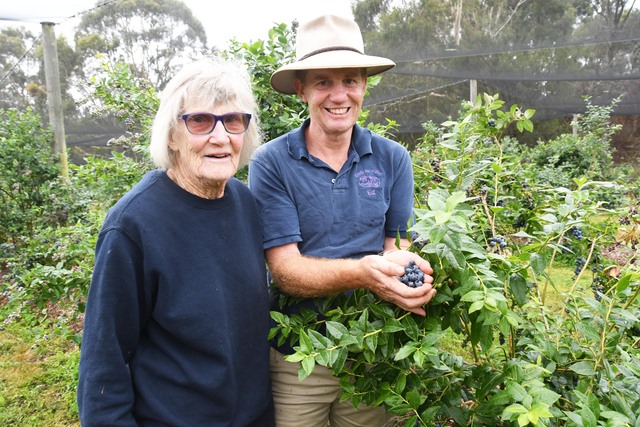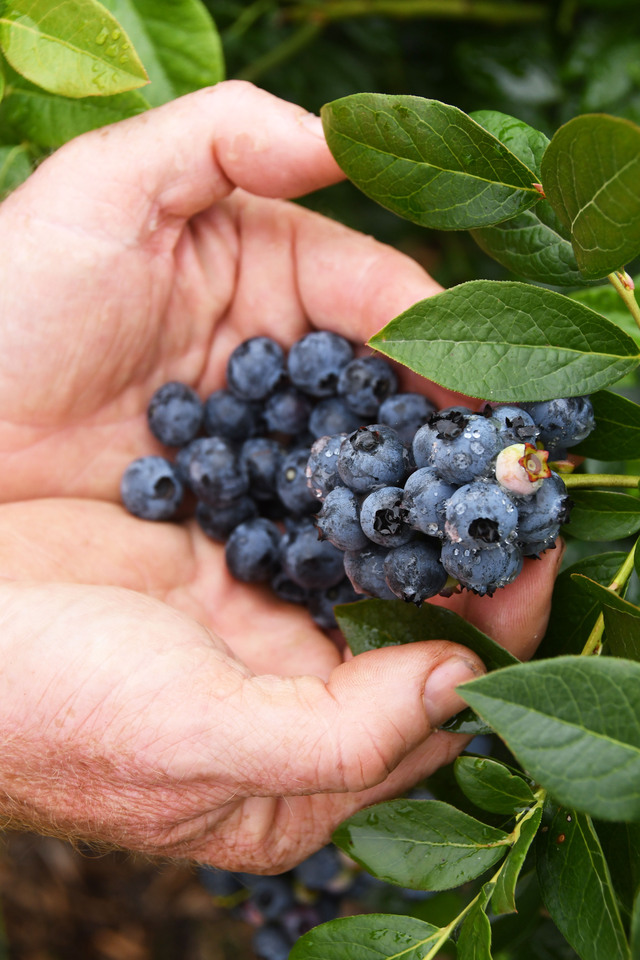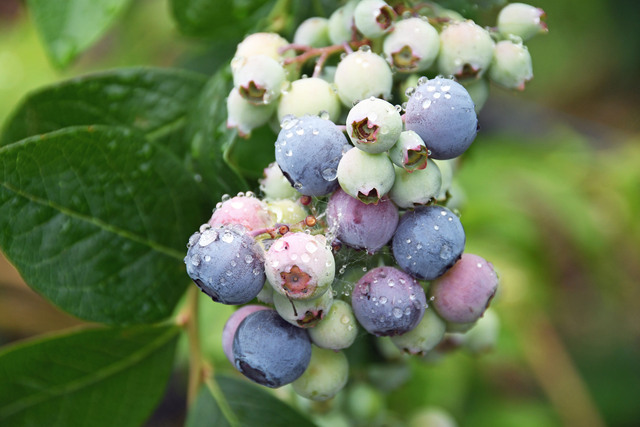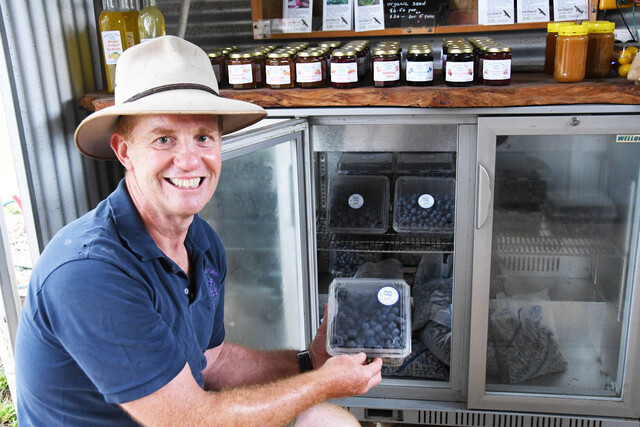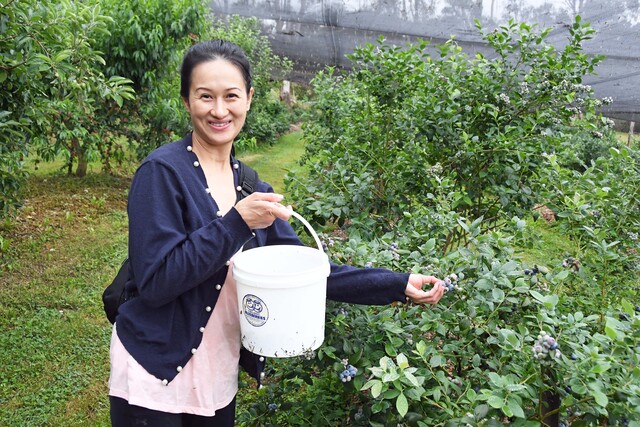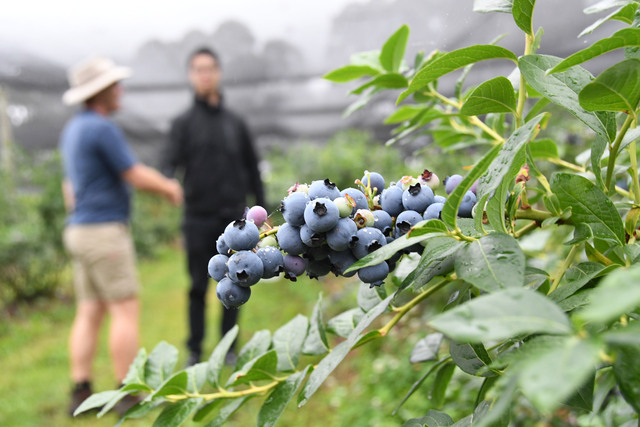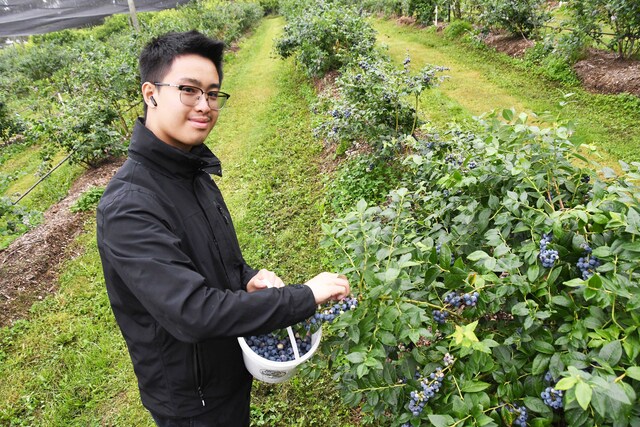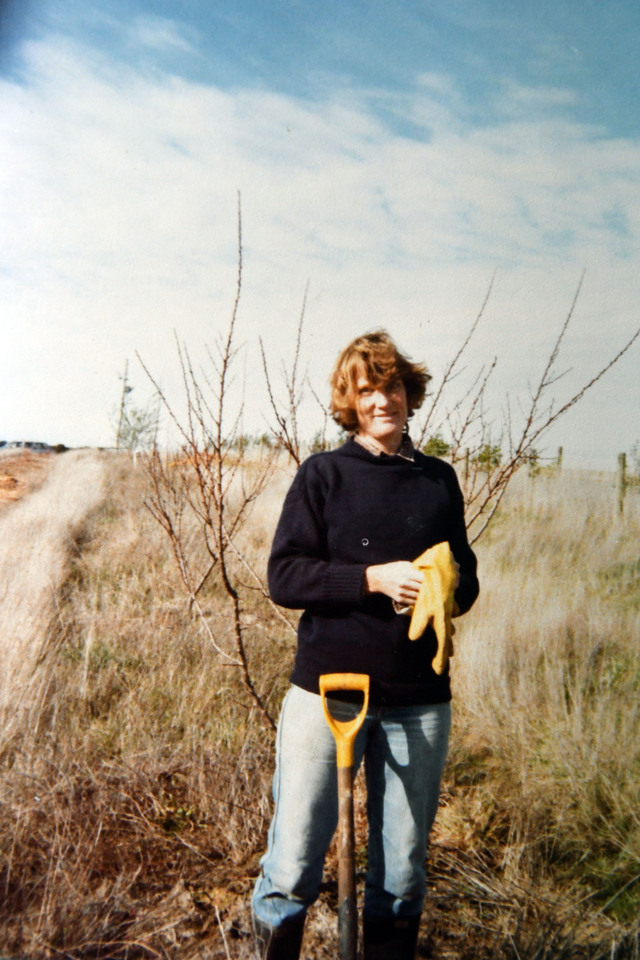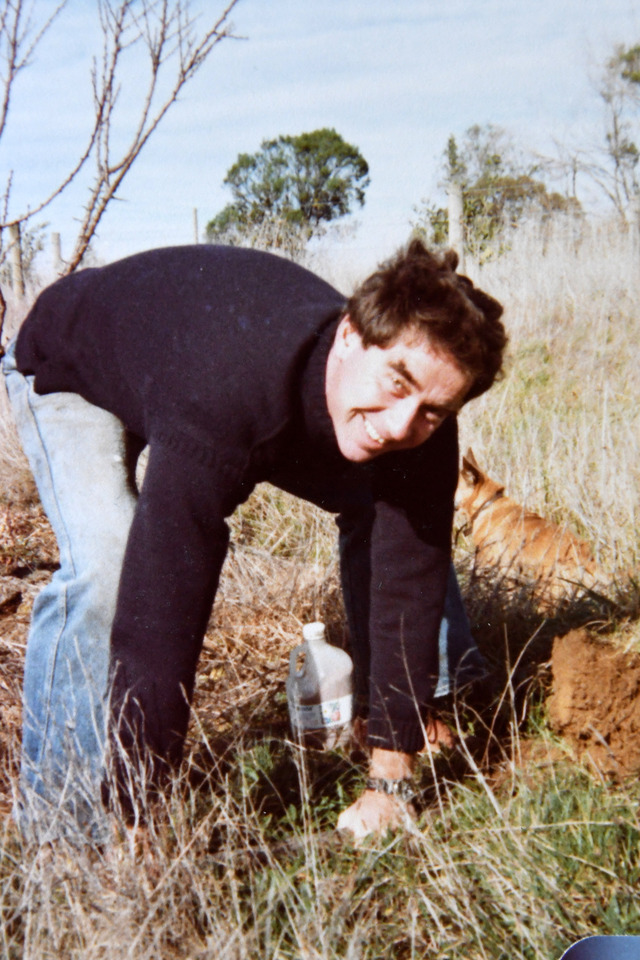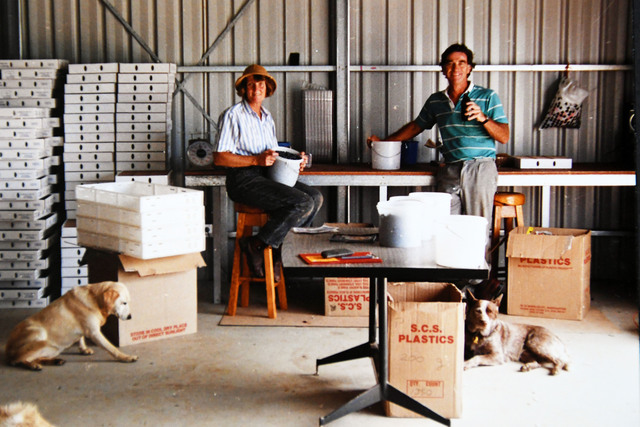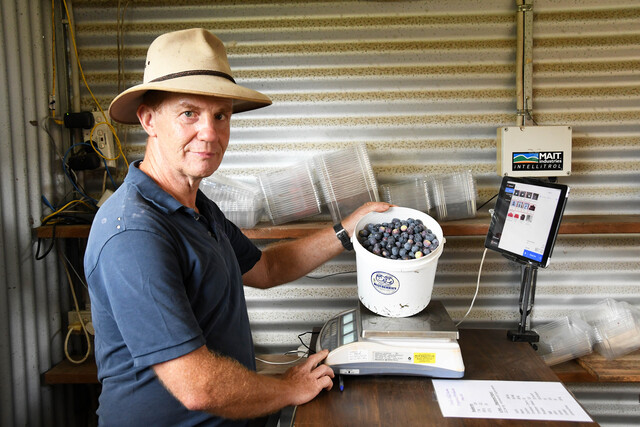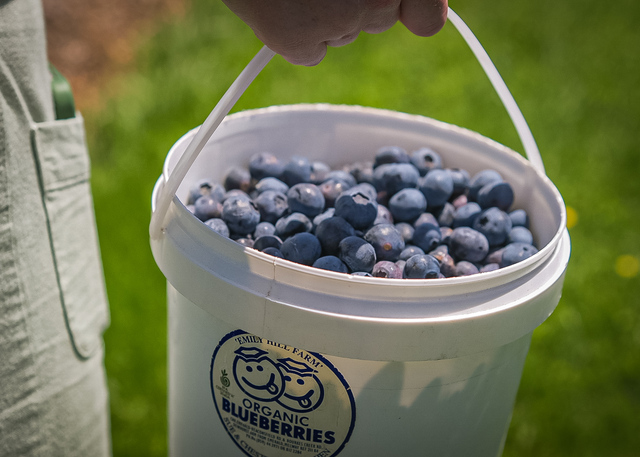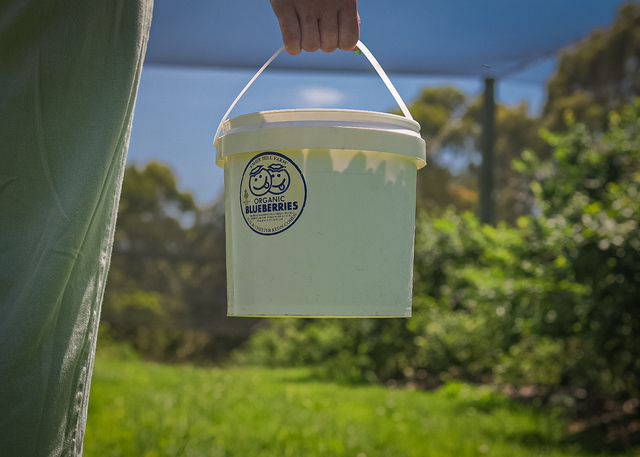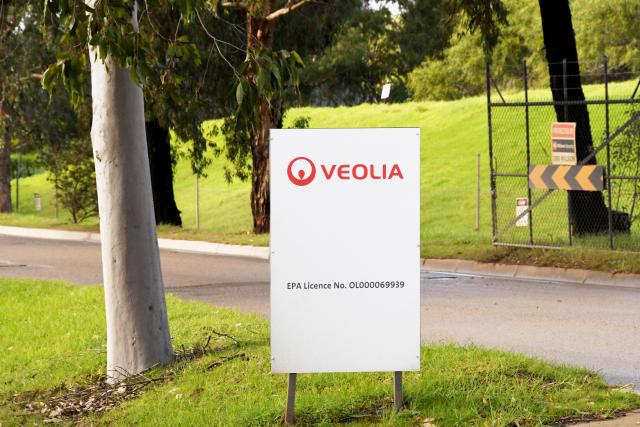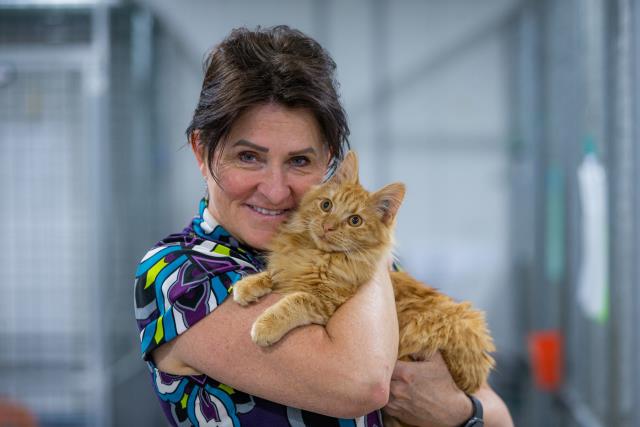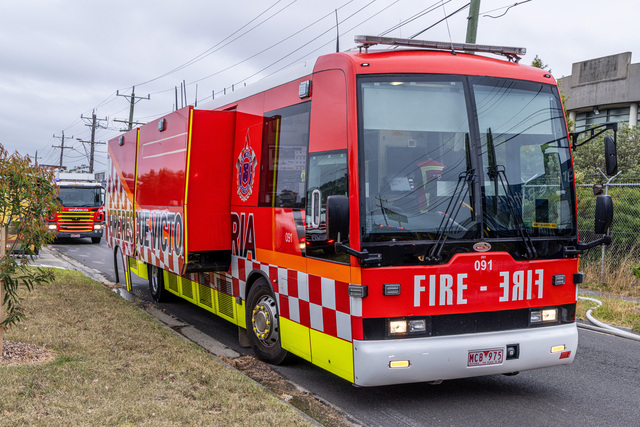PRECEDE: It’s blueberry season and there is hardly more of an established and iconic destination locally for the delicate produce than Emily Hill Farm Organics. Running for over 40 years at their farm nestled in Dewhurst, Gazette reporter Corey Everitt spoke with Ed Keon-Cohen about the year-round work that goes into these few weeks when blueberries fly off the farm.
BREAKOUT QUOTE: “It was just a purpose, you know, a purpose to get out of bed and go do things and be outdoors.”
Last Tuesday 10 December was the long-awaited call to action when the first batch of berries appeared with the deep blue ripe for the picking.
All of the work throughout the year comes down to a few weeks, as Ed Keon-Cohen says ‘you work for ten months to produce food for 2 months’.
Only a handful of small stores are stocked with Emily Hill blueberries, ‘90 to 95 percent’ of them are sold straight off the farm shop.
“Half of it would be by pick your own and the other half are people who come to the farm shop,” Ed said.
“We pick today, that will be sold tomorrow, nothing is more than 24 hours old.”
Additional help is recruited in the picking season, while the rest of the year it is mostly just Ed, his mother Sue and the rest of the family.
Everything is done pretty much the same since the beginning over 40 years ago.
It’s the small-scale dedication to quality straight off the farm that has local customers coming back for decades and new customers come from afar.
“Being organic, everything is hand-done,” Ed said.
“We hand prune all the bushes in winter, it probably takes two months full time to prune two and a half thousand bushes.
“We mulch everything by hand, straw, wood chips, all that sort of stuff. We have to weed the whole place by hand.
“It’s more of a, I suppose, a hobby and it was a retirement lifestyle thing for my parents more than it was a financially sustainable business you could live off.”
His mother, Sue and his father, Chester, who has since passed away, started the farm in 1982.
Blueberries are a staple you can find in any supermarket today, but they were never planted in Australian soil until the 1980s and Emily Hill is one of the first to have done it.
The story goes that Chester bought the farm without even telling Sue, but given her passion for horticulture and the product of her vision 40 years later, it seems certain that the purchase was made with Sue firmly in mind.
The farm was just barren paddocks, devoid of even patches of grass.
A graduate of the Victorian College of Agriculture and Horticulture, Sue led the rejuvenation of the land into a lush landscape of native trees and shrubs that sing with birds today.
Every plant, beyond even the bushes of blueberries, thrives because of the family.
“It’s a completely different landscape to what it used to be,” Ed said pointing across the farm’s landscape.
“There’s a creek that goes through here and joins another creek through there, she’s fenced it all off, land for wildlife, constant replanting, no blackberries, you know.”
Initiating blueberries in Australia was a valiant task, but it certainly isn’t an easy one.
They need precise conditions to thrive and a good deal of patience, all made more difficult if you write off the use of synthetic materials down the organic path.
The farm started with 500 blueberry plants put in the ground, today the farm has 2500 plants with many of the original still producing today.
They take a significant time to establish. About 7 years ago, the farm doubled with 1250 more blueberry plants and it’s only this year that they are producing.
For anyone interested in cultivating their own, Ed says to ensure you get plants that are suited to your local environment.
“You’ve got to have the right plant for the right area, but also the right soil conditions,” Ed said.
The farm grows 10 varieties, all ripening at different stages over the next two months.
Blueberries like an acidic soil, to get good produce you need to get the right balance in the ground.
“They’re very different from any other plant. They’ve got to have a different pH in the soil and there’s a bit involved in it, you can’t just chuck it in the ground,” Ed said.
“So the pH of the soil has to be under five and a neutral pH in the soil is like five and a half, six.”
Being organic, measures to adjust the soil take time. Another inevitable organic factor is weeds.
“Weeds just drive you nuts,” Ed said.
“You finish one row, you go back to start the same row again.
“But the trade-off for all the weeds is there’s no chemicals and I think you get a better taste of fruit because of it, you don’t have to wash the fruit, you don’t lose the texture.”
Ed can talk at length about blueberries but being on the land wasn’t exactly where he thought he would be in life.
Before coming on to the farm about seven years ago, Ed was a police officer based in the crime investigations unit at Pakenham Station.
Coming up to the farm to help out, he would eventually find himself taking on more of a role. He traded the urban job in blue for another kind of blue on the land. The only thing they share is an equal intensity of labour.
“It was never a career plan or anything like that,” Ed said.
“It was just a purpose, you know, a purpose to get out of bed and go do things and be outdoors.”
His parents were also some of the original members of the Australian Blueberry Growers Association.
The farm still does work with the association, Sue leads work in testing new varieties on the farm.
For the next several weeks, an average of 100 kilos of blueberries are going to be picked from the farm everyday.
That is both the picking of Ed, Sue and the team as well as customers picking their own.
The farm gate shop will be open from 8.30am to 3pm each day and stocked with blueberries during the season. The address is 770 Bourkes Creek Rd, Dewhurst.
It is also stocked with a variety of homegrown jams, marmalades, free-range eggs and much more organic produce from the farm.
If you want a session to pick your own, you can register at emilyhillfarm.com.au/home-2/u-pick/

